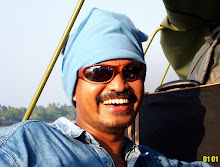ANDREW WINSTON
1:37 PM Wednesday June 24, 2009
Tags:Decision making, Green business, Recession
We're in the midst of the worst decline in auto sales history — yet Toyota can't make the newest model of its hybrid gas-electric Prius fast enough. According to the New York Times, the world's largest automaker has received 80,000 pre-orders already, one-fifth of the company's Prius sales goal for the year. On the heels of the depressing GM and Chrysler bankruptcies and layoffs, Toyota has instituted overtime production in its Tsutsumi plant in Japan.
This news comes on the heels of one of Honda's latest entries in the hybrid market, the significantly revamped Insight, becoming the bestselling car in Japan in April — not the bestselling hybrid, but the bestselling vehicle — racking up over 10,000 sales at $19,000 a pop.
The era of niche eco-vehicles is over. With Toyota and Honda experiencing their first losses in decades, the vast success of the green parts of their product portfolios must be very welcome — a life boat in troubled times.
It's educational to think for a minute about when the foundations of these successes were built. Toyota started development on the first generation of Prius, not one, but two recessions ago. Sixteen years ago, on the heels of the early 90s downturn, Toyota started designing what it thought would fit the demands of the 21st Century. Early in the process — and even though oil was only $17 per barrel — the team decided that a critical focus should be "environment." And while I can't say exactly when Honda decided to completely retool their earlier Insight model, how long after the early 2000s recession could it possibly have been?
A wide range of companies seem to be making moves now to prepare for a greener future. In addition to well-publicized mega-goals for growth of green product sales from the likes of P&G, GE, and IBM, others are signaling their intentions to play in new spaces. Taiwan Semiconductor Manufacturing (TSMC), which the New York Times calls "one of the most formidable manufacturers on the planet," has indicated, strongly, that it will try its hand in renewable energy and next-generation lighting. TSMC just reorganized at the most senior levels to do so. Here's the Times on the shift:
"The company declared its new intentions with a bold gesture. It stripped Rick Tsai of his chief executive title and placed him in charge of a new unit created to look into fresh business opportunities...In an interview ahead of the management shuffle...Mr. Tsai highlighted solar cells and LEDs as the most likely markets it would enter."
In addition to shaking up these growing industries, and possibly helping to lower the costs of both solar and LED lights, the play is a smart bet on green innovation that should help keep TSMC growing for years — perhaps paying off big time during the next tech spending downturn (which may happen sooner than a global recession).
TSMC is not the only tech company making noise about looking for growth outside of traditional spaces. Applied Materials, the guys behind the machines behind semiconductors, moved strongly into solar a few years ago — it's a bright spot for the company during this brutal drop in tech spending. And Andy Grove, legendary CEO of Intel, has suggested strongly that his alma mater should use its technological expertise to make better batteries (see the same Times article from above).
Innovation takes time. Building new markets that can grow into significant sources of revenue takes hard work and patience. So what's going to prop up your earnings the next time the world, or just your industry, goes into slow-down mode? What will your customers want and need 10 years from now? One core way to answer that question is to think hard about coming environmental pressures and trends.
Mega-regulation on carbon will raise the cost of carbon-intensive value chains. Water shortages could severely restrict growth in key regions or in specific product markets. Rising concerns about chemicals and toxicity will radically shift demand for some products (think about what's happened in just a few years to the baby bottles, toys, and other plastics that include phthalates or the chemical "BPA").
Think through these large trends, ask heretical questions (such as, "What if we used no water?"), and use the green lens to spot long-term trends. This process should start your innovation wheels turning. While we climb out of this downturn — and green strategy can play a critical role in helping companies do that — it's good to start thinking longer term. Believe it or not, it's time to get ready for the next slowdown now.


